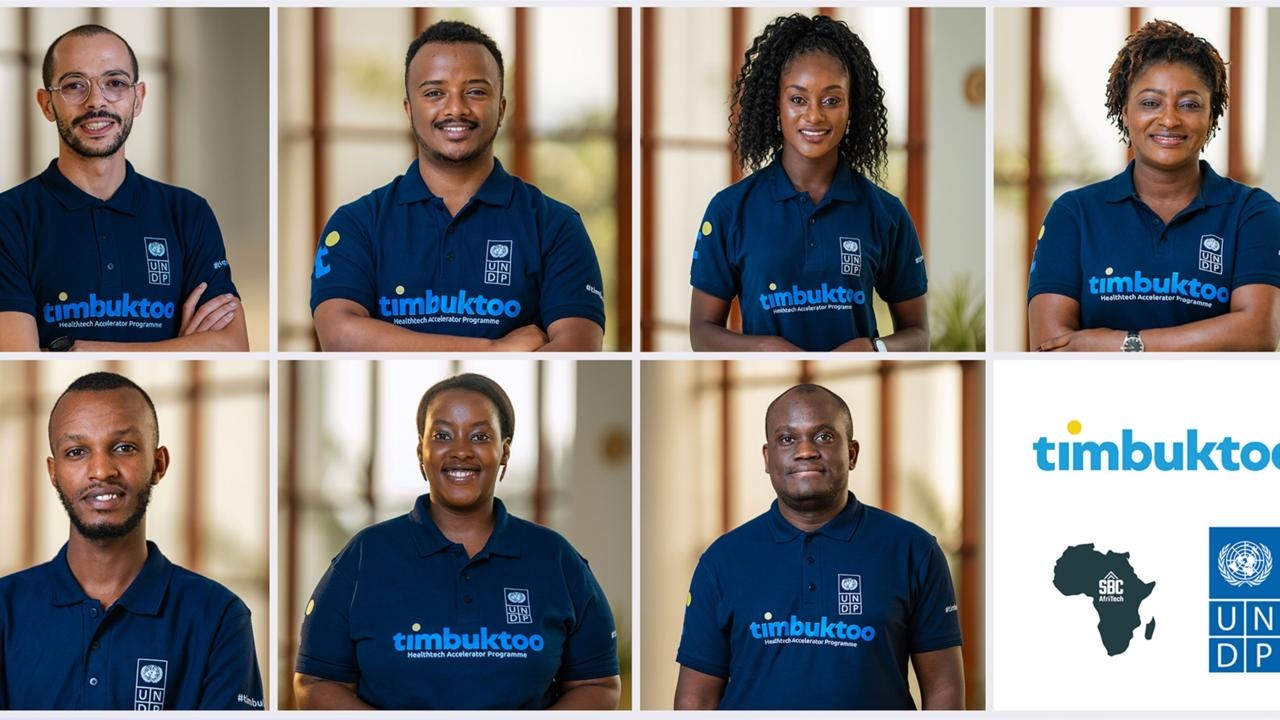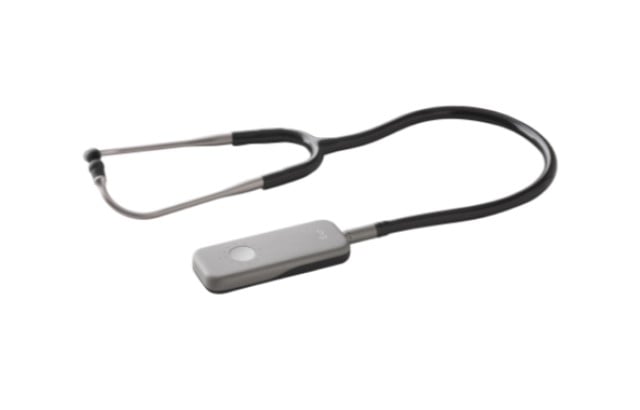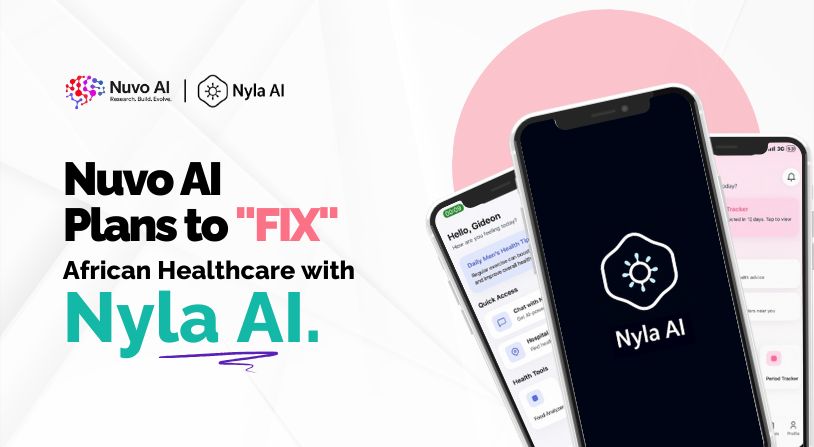The United Nations Development Programme (UNDP), in collaboration with the Timbuktoo Africa Innovation Foundation, recently unveiled the top 15 startups advancing to the Acceleration Phase of its HealthTech Hub program. This initiative marks a significant step in fostering innovation to tackle some of Africa’s most pressing healthcare challenges.
Launched in November 2024, the Timbuktoo HealthTech Hub kicked off with a boot camp aimed at identifying and mentoring the continent’s most promising health-focused startups. Out of 40 participants, 15 high-potential startups were selected to proceed to the Acceleration Phase, receiving mentorship, training, and a $25,000 grant to scale their solutions. An additional five pre-MVP startups were given a customized $5,000 grant to refine their products and bring them to market.
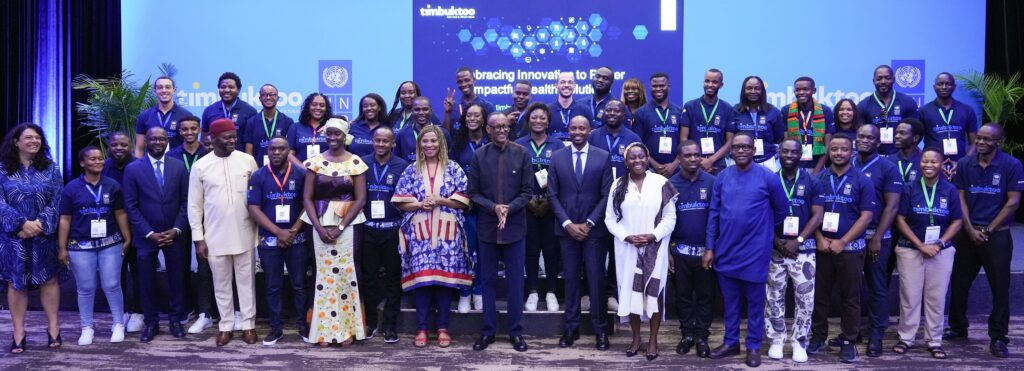
The winners include notable names like Mobihealth, Zuri Health, Malaica, and KeneCare Virtual Hospital. Each represents a diverse spectrum of solutions across telemedicine, diagnostics, healthcare logistics, and mobile health. These innovations aim to address longstanding gaps in Africa’s healthcare infrastructure while embodying the spirit of entrepreneurship and innovation.
Full List of Winners
The 15 startups advancing to the Acceleration Phase are:
- Medtech Africa
- Zuri Health
- Mobihealth
- InnovaHyper/BAHO NurseBots
- KeneCare Virtual Hospital
- Adjibola Tech
- MedTrack Technologies
- Gideon Inno Textiles
- WeCare Integrated Health Network
- Malaica
- A-Lite Uganda Limited
- DWEE Healthcare
- STE HELLOPHARM BJ SARL/PHARMAP
- IGAFRI LTD
- Ask-care Senegal
Additionally, the five startups participating in the Pre-MVP Studio include:
- Fem & Hom
- AIDSS
- Nexur Tech
- Geuza Ltd
- Biomax Plus
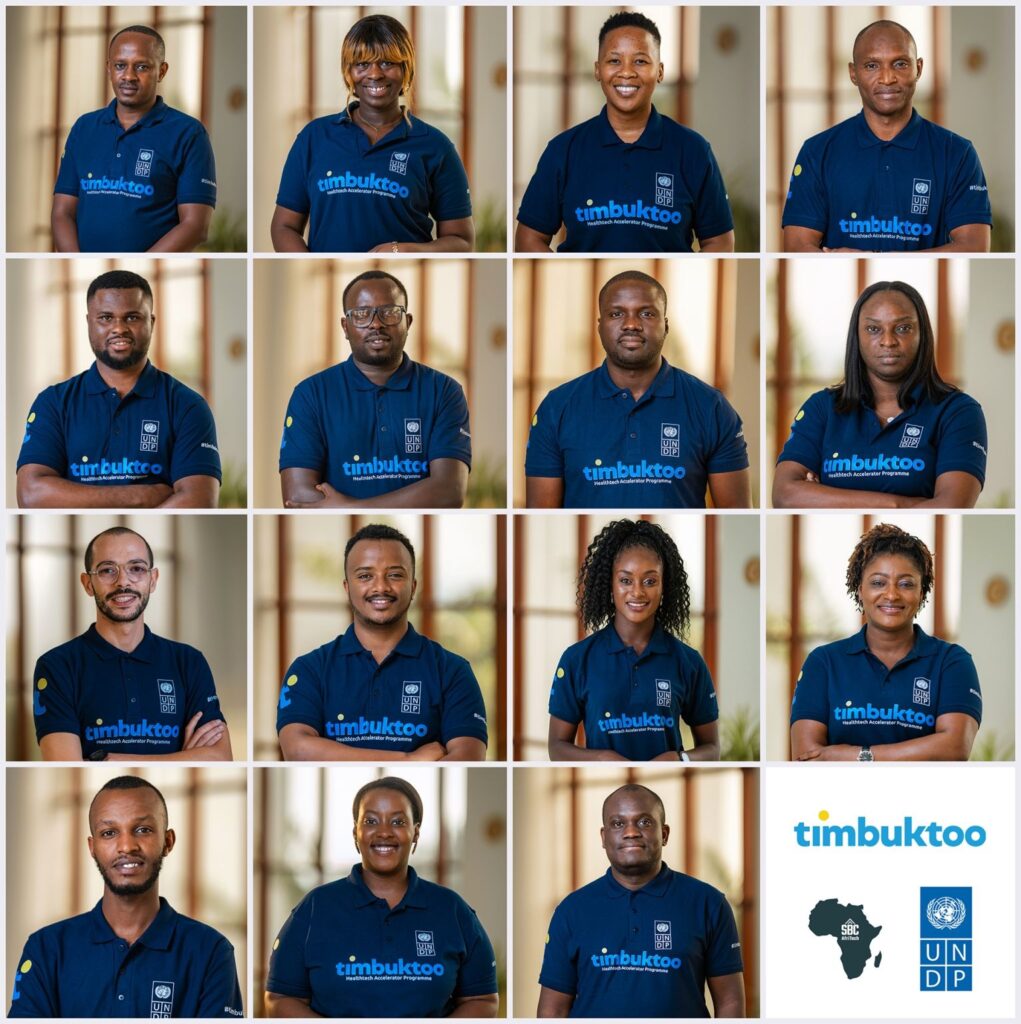
Challenges and Criticism
While the program’s intent and structure appear laudable, the $25,000 grant has drawn significant criticism. Ikpeme Neto, a prominent healthcare entrepreneur, voiced concerns over the limited financial scope of the grants, calling it insufficient for genuine scaling efforts. He described the initiative as a potential “PR stunt” rather than a robust solution to Africa’s health challenges, emphasizing that $25,000 “won’t scale anything other than alert founders to the idea that this could all be a PR move.”
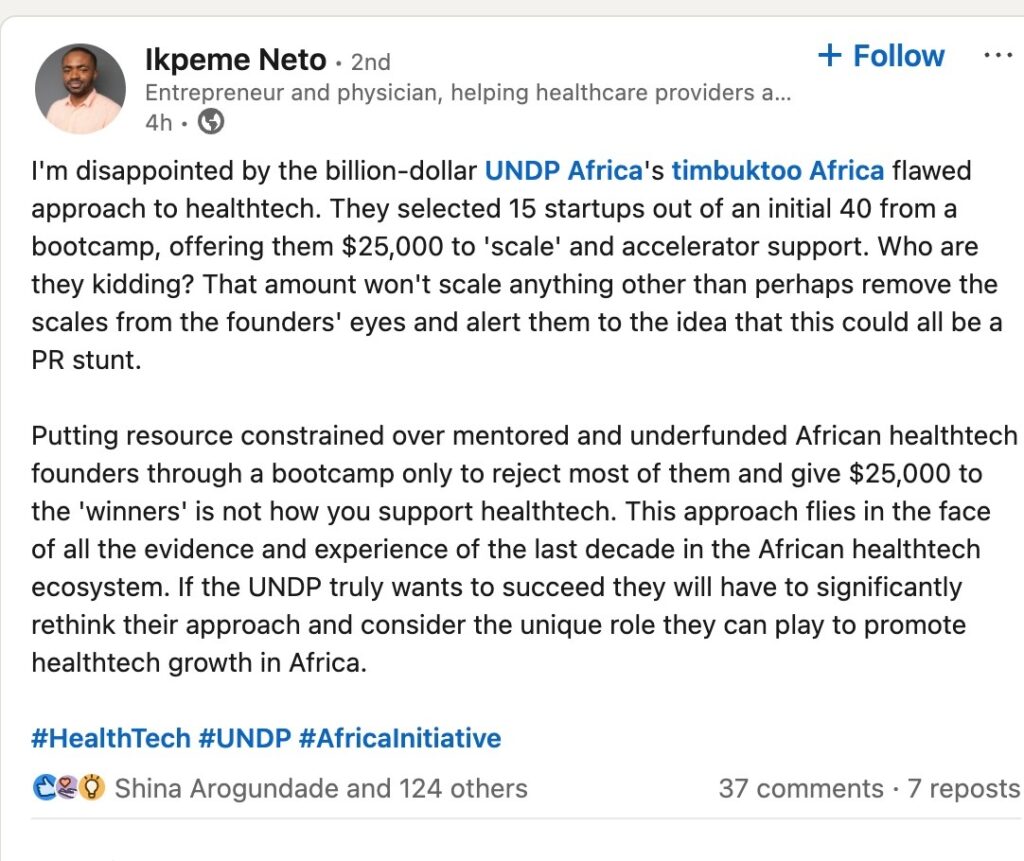
The critique highlights a broader challenge with accelerator programs across Africa: the disconnect between their ambitions and the resources allocated to participants. With UNDP’s broader vision of mobilizing $1 billion in startup capital over the next decade, many observers believe that a more significant investment per startup would better align with their goals of addressing systemic healthcare gaps.
Constructive Solutions
Despite the criticism, the program offers a unique opportunity for constructive growth. To strengthen the initiative:
- Increase Grant Amounts: Scaling impactful health tech solutions often requires significantly higher capital. Boosting the grant allocation to $100,000 or more would better align with the needs of scaling startups.
- Access to Follow-On Funding: Beyond grants, providing startups with pathways to secure venture capital or catalytic funding would ensure the sustainability of their innovations.
- Structured Milestones: Linking funding disbursement to clearly defined performance metrics could help align expectations and outcomes for both startups and funders.
- Tailored Support Programs: Expanding technical and operational support for startups at varying stages would ensure both mature and pre-MVP participants receive tailored growth opportunities.
Celebrating the Vision
The Timbuktoo initiative is part of a broader $1 billion strategy to spark Africa’s startup revolution across multiple sectors, including Health Tech, FinTech, and AgriTech. By championing young innovators, UNDP aims to position Africa as a global hub for innovation, setting a benchmark for inclusive and sustainable development.
As Africa continues its journey to address healthcare inequities through innovative technology, programs like the Timbuktoo HealthTech Accelerator play a crucial role. While there is room for growth and refinement, the initiative has already showcased the vast potential of Africa’s entrepreneurial ecosystem. By integrating constructive feedback and increasing support, the Timbuktoo program has the opportunity to redefine how health innovation thrives on the continent.

